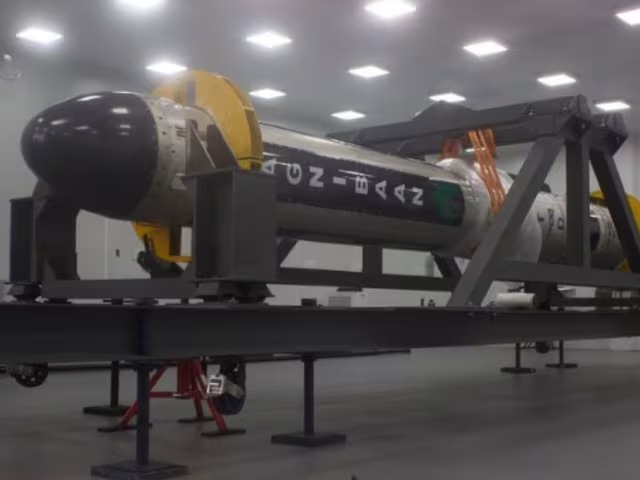Agnikul in Chennai is prepared to launch a rocket from Sriharikota’s first private launchpad for testing
Another privately manufactured rocket from Sriharikota’s Satish Dhawan Space Center is about to take off. Still, it’s a first for many: Agnikul Cosmos, a space tech start-up located in Chennai, created this one-stage rocket. Additionally, it will be tested on Sriharikota’s first private launch pad, which is run by the same group of space enthusiasts.

In this technological demonstration, we will test the rocket’s essential parts. The co-founder of the start-up situated in Madras, India, Moin SPM, stated, “We are excited to carry out our launch from our launch pad. We have been given a launch window from March 22 to March 28.
The single-stage rocket, Agnibaan SOrTeD, will take off vertically from the launch pad, perform a pitchover maneuver that will redirect its trajectory towards the ground, and splash down into the Bay of Bengal after a 3.3-minute flight, in contrast to previous sounding rockets that are launched from the guide rails. The Agnikul crew will manually operate the flight sequence from the Mission Control Center, which is located four kilometers from the launch pad. The crew will get tracking, telecommand, and telemetry assistance from the Indian Space Research Organization (ISRO).
It is a suborbital flight that is controlled. Our goal is to showcase its control algorithms and on-board avionics. Giritharan Thiruppathirajan from the Agnikul team said, “We will closely check its controllability and the rocket must fly according to the predetermined trajectory.”
Single-piece 3-D printed engine for sub-orbital flight
The start-up, which was founded in 2017, has been preparing for its debut for about a year. The domestic rocket will be propelled by liquid oxygen and aviation turbine fuel (ATF), using a semi-cryogenic engine.
There won’t be any observation instruments on Agnibaan SOrTed. The Agnikul team’s utilization of single-piece 3D printed engines, which they have built and trademarked domestically, is another distinctive aspect of the project.
Giritharan emphasized the start-up’s goal to serve the quick-on-demand satellite launch industry by saying, “We can build it in our 3-D printed facility within 72 hours. Normally, it takes around six-eight months to manufacture this engine.”
Launch pad Agnibaan.
A full single-piece 3D-printed engine may be produced, in contrast to liquid-based engines that need assembly and contain many pieces. The team claims that approach shortens the preparation time and improves hardware dependability.
The group of aspiring space entrepreneurs will be ready for the first orbital trip as soon as the technological demonstration is successful.
The Indian Space Research Organization (ISRO) launched Vikram-S, a privately manufactured rocket from Skyroot Aerospace, another Hyderabad-based start-up, one year ago. Since the government of India allowed private engagement in the space industry, more than a hundred space-tech start-ups have sprung up all around the country.







